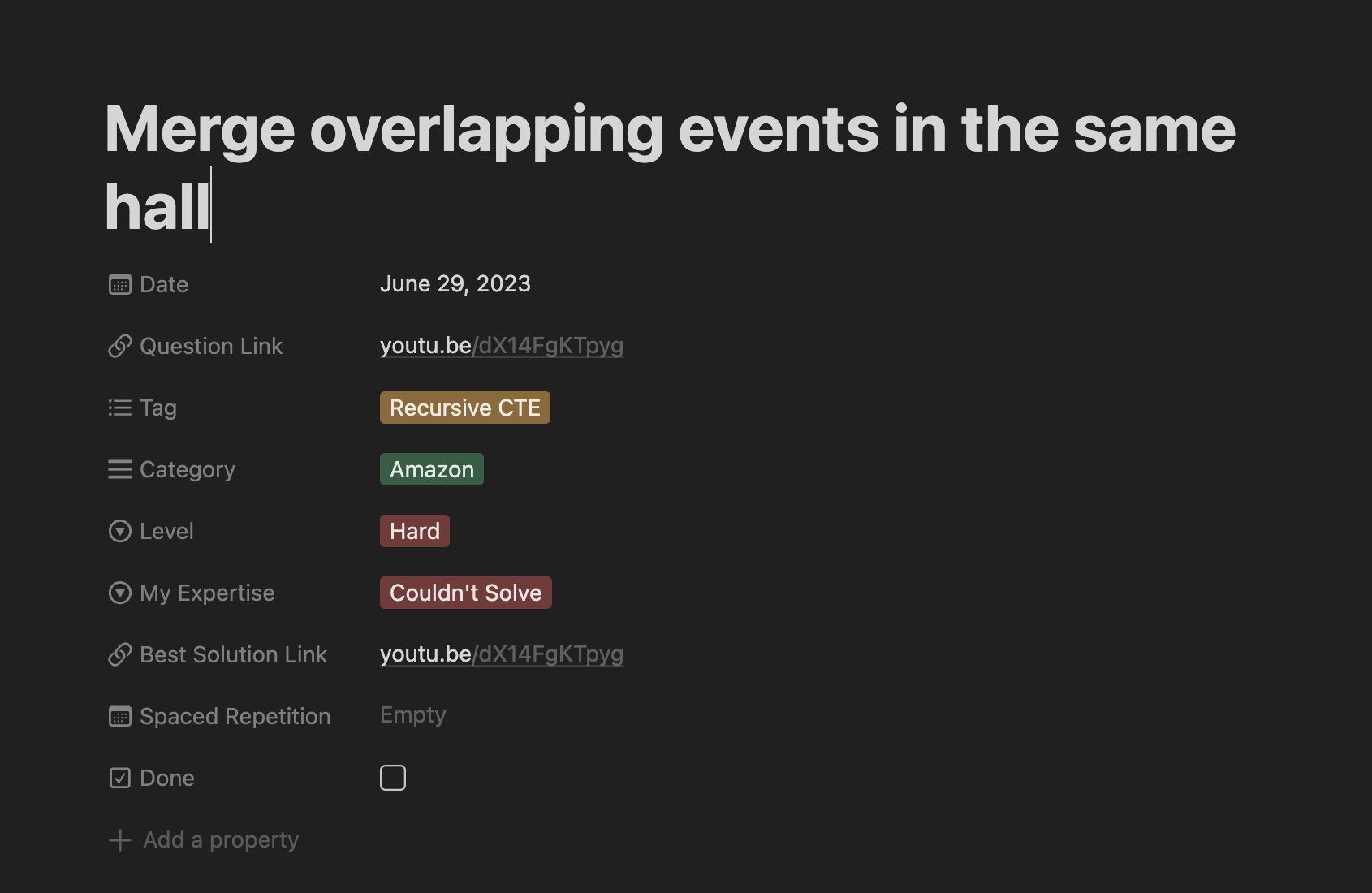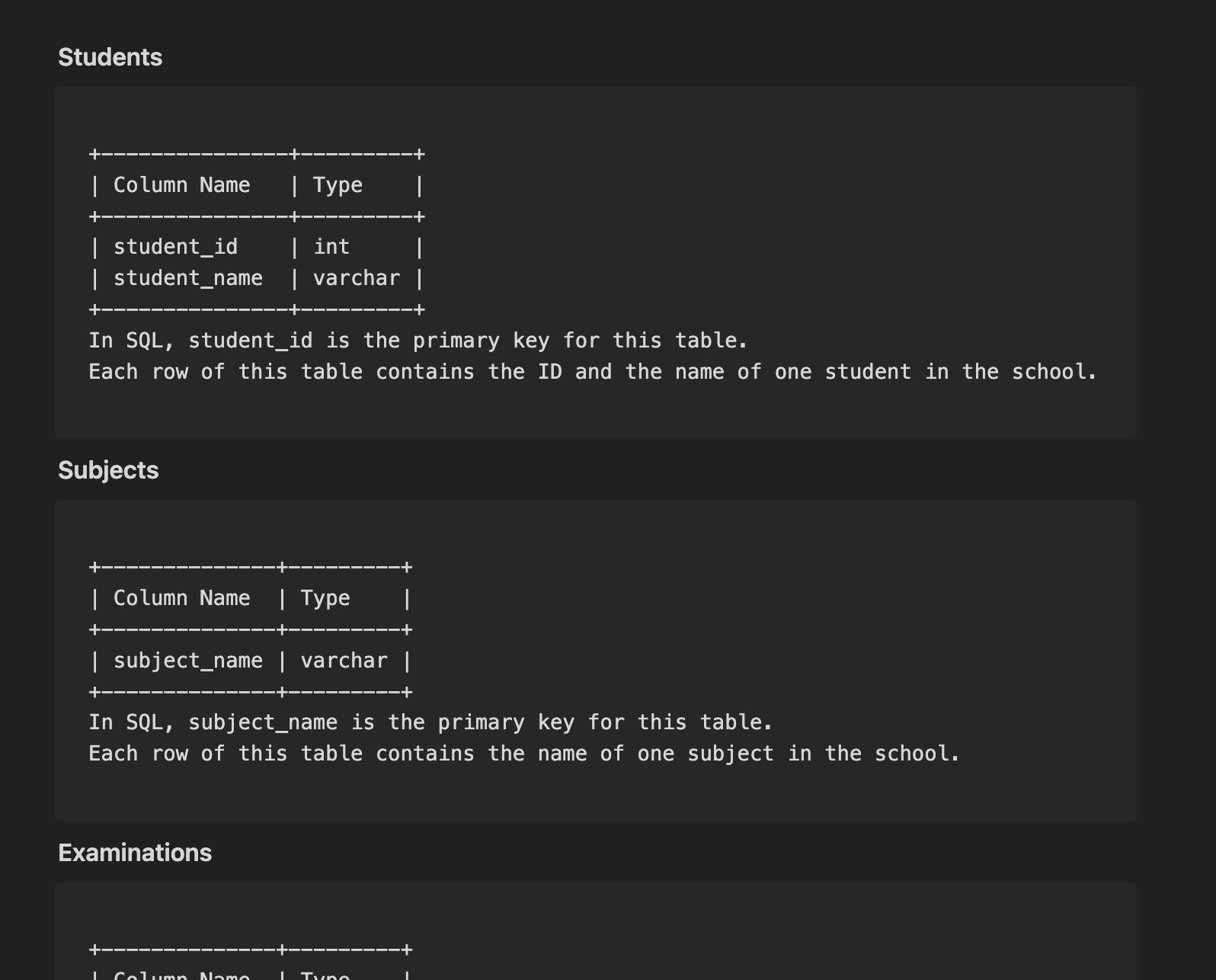Building the Ultimate SQL Notion Database
You can find the original post on LinkedIn.
Building the Ultimate SQL Notion Database
Table of Contents
- Background: From Curiosity to Obsession
- Why a Notion Database?
- Key Features of My Setup
- Tools & Sources Covered
- Next Steps in My SQL Journey
- Final Thoughts
Background: From Curiosity to Obsession
Two years ago, during a database migration project at Accenture, I found myself facing SQL challenges far beyond what I'd seen before. What began as a search for "how to perform an outer join" spiraled into a deep fascination with SQL's capabilities.
That was the beginning of a never-ending journey.
Why a Notion Database?
I needed a system to organize, track, and review every tough SQL problem I encountered. That’s when I started building a fully customizable Notion database focused solely on SQL mastery.
It evolved into a structured, visual learning tool that helps me:
- Track what I’ve solved vs. what’s pending
- Measure my strengths and weaknesses
- Categorize problems by concept, complexity, and platform

Key Features of My Setup
- Tags by Topic: Queries are labeled with relevant concepts such as Joins, Window Functions, Recursive CTEs, Subqueries, etc.
- Complexity Levels: Every question is marked as Easy, Medium, or Hard.
- Expertise Tracker: I log whether I was able to solve the problem ("Could Solve") or not ("Couldn’t Solve").
- Progress Indicator: A checkbox tracks which queries are done vs. those in progress.
- Calendar Integration: A built-in calendar view lets me plan my weekly and monthly practice goals.
- Company-Wise Filter: Separate views let me target Amazon-style, Facebook-style, or other company-specific patterns.

Tools & Sources Covered
To ensure a comprehensive practice experience, I’ve pulled problems from multiple platforms:
- LeetCode
- DataLemur
- Interview Query
- YouTube
This blend gives me exposure to both classic and niche SQL problems.
Next Steps in My SQL Journey
Writing a correct query is only half the challenge. Performance is the true differentiator. Here’s what I’m focusing on now:
- Mastering query execution plans
- Partitioning and clustering data
- Advanced indexing strategies
- Studying the internals of query optimizers
- Learning dimensional modeling (à la Kimball): facts, dimensions, and surrogate keys
Final Thoughts
This Notion database isn't just a personal project—it's become a reflection of my growth as a data professional.
If you’re building something similar or want to chat about data workflows, database design, or SQL tuning, let’s connect!